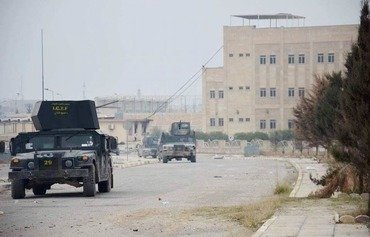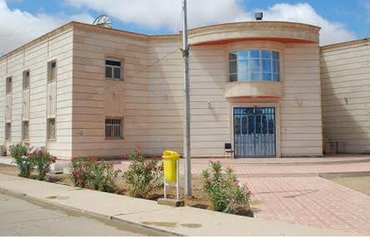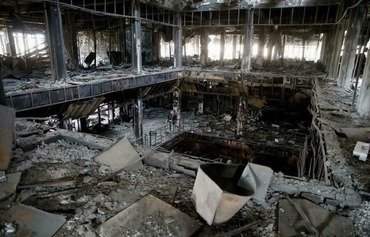The Iraqi government and local authorities have been working together to finish repair work at the University of Mosul before the 2017-2018 academic year begins in September, officials tell Diyaruna.
The Mosul campus suffered significant damage after the "Islamic State of Iraq and Syria" (ISIS) blew up several buildings and set fire to the main library in a parting act of destruction as its fighters fled.
Before its defeat, ISIS had been using the university's 124 buildings as an operations centre and barracks.
Now that Mosul has been fully recaptured, preparations are under way for the resumption of classes at the main campus in east Mosul on September 1st, said Ministry of Higher Education spokesman Haider al-Aboudi.
"Until that date, our efforts will continue to rebuild damaged facilities at the university," he told Diyaruna.
Rehabilitation work is ongoing "through the engineering efforts of the ministry and other relevant government agencies", he said, and with international support and technical assistance provided by organisations such as UNESCO.
Once rehabilitation work has been completed, he added, the ministry plans to shutter the University of Mosul's temporary campus, which was established in Kirkuk province after ISIS infiltrated Mosul.
This effort is being overseen by a special operations room in the ministry, he said, explaining that "alternative campuses for the universities of Tikrit, Anbar and Fallujah" were removed earlier on.
After east Mosul was liberated, youth groups organised volunteer campaigns to clean the university and collect books for its library, al-Aboudi said.
Local students and professors who had not been displaced resumed regular classes in buildings that were not seriously damaged, expressing their desire to restore regular life in their university.
In early July, Minister of Higher Education Abdul Razzaq al-Issa visited the university and sat in on the College of Science's first doctorate thesis defence since ISIS's incursion.
Extensive rehabilitation is needed
Some of the university’s facilities have been completely destroyed, while others have sustained significant damage, Ninawa provincial council member Abdul Rahman Wakka told Diyaruna.
The Ministry of Education has been working with Ninawa's local government for months to rehabilitate the university buildings, he said.
"By September we hope we will have completed the main work, such as preparing classrooms, administration rooms and science laboratories," he said.
Al-Wakka said the university’s first school year after the liberation will present a significant challenge for students, faculty and staff.
"However, we are confident they will be able to overcome all difficulties until reconstruction of their university is complete," he added.
Founded in 1967, the University of Mosul includes 23 colleges specialising in science and the humanities, teaching hospitals, museums and technical and consulting offices.
It has a faculty of 4,281 and can serve more than 31,000 undergraduate and graduate students.
"Universities have suffered the lion’s share of sabotage and destruction at the terrorists’ hands," said Iraqi MP Abeer al-Husseini, who serves on the parliamentary education committee.
The official resumption of classes at the University of Mosul represents an "important, major step" to consolidate stability in the city, she told Diyaruna.
"The university’s comeback will allow all students, especially those who have not been able to leave the city, an opportunity to complete their studies and make up what they missed," al-Husseini said.

![Volunteers and University of Mosul students participate in a campaign to clean the university's campus. [Photo courtesy of the Ninawa Youth Team of Fraternity]](/cnmi_di/images/2017/07/18/8780-Iraq-Mosul-university-600_384.jpg)







Mosul universities can’t revive with such superficial solutions and modest local efforts. This scientific edifice needs highly efficient international efforts. Such statements are futile. And where are the roads and transport networks that would assimilate these big numbers of students, professors and employees who want to go to classes? This is in addition to the large numbers of pre-university students, teachers and employees of the Ministry of Education, and employees of other ministries. Stop with these false heroics at the expense of the future of Mosul and its traumatised people. Fear God for once!
Reply1 Comment(s)